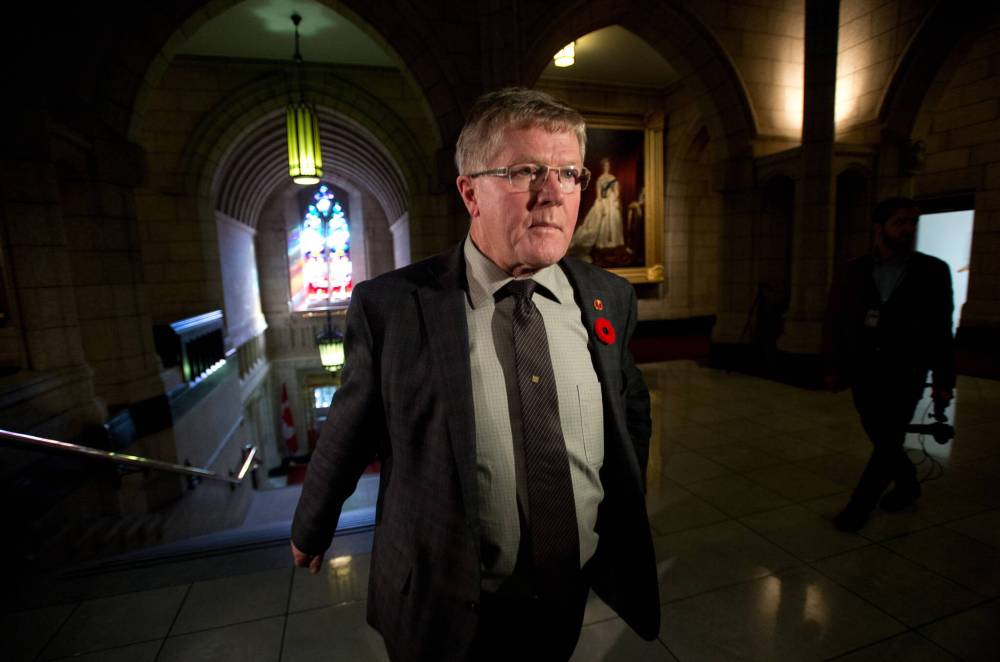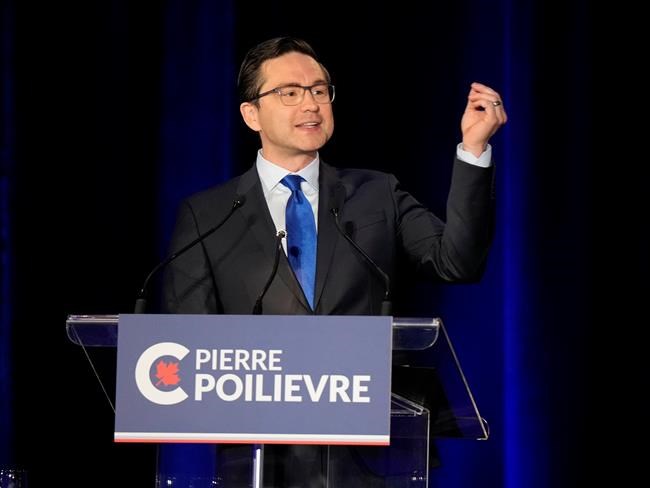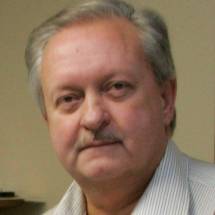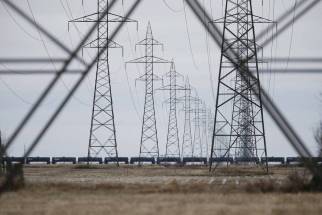Manitoba voice adds to CPC discord
Read this article for free:
or
Already have an account? Log in here »
To continue reading, please subscribe:
Monthly Digital Subscription
$0 for the first 4 weeks*
- Enjoy unlimited reading on winnipegfreepress.com
- Read the E-Edition, our digital replica newspaper
- Access News Break, our award-winning app
- Play interactive puzzles
*No charge for 4 weeks then price increases to the regular rate of $19.00 plus GST every four weeks. Offer available to new and qualified returning subscribers only. Cancel any time.
Monthly Digital Subscription
$4.75/week*
- Enjoy unlimited reading on winnipegfreepress.com
- Read the E-Edition, our digital replica newspaper
- Access News Break, our award-winning app
- Play interactive puzzles
*Billed as $19 plus GST every four weeks. Cancel any time.
To continue reading, please subscribe:
Add Free Press access to your Brandon Sun subscription for only an additional
$1 for the first 4 weeks*
*Your next subscription payment will increase by $1.00 and you will be charged $16.99 plus GST for four weeks. After four weeks, your payment will increase to $23.99 plus GST every four weeks.
Read unlimited articles for free today:
or
Already have an account? Log in here »
Hey there, time traveller!
This article was published 18/07/2022 (1239 days ago), so information in it may no longer be current.
The “freedom convoy” protest that shut down Ottawa’s parliamentary precinct in January and February has become the unlikely wedge issue for Canadian Conservatives tussling over their party’s direction. The rights of truckers and other encamped demonstrators to block streets and blast air horns is no longer at the centre of Canadian political debate, but for leading Conservatives it’s the hot topic of the current leadership race.
Some among the tiny percentage of truckers who did not want to be vaccinated against COVID-19 announced their outrage by parking their highway rigs on streets near Parliament on Jan. 28 and defying Ottawa police instructions to move on. They settled in for a long occupation, raised funds from sympathizers in Canada and the U.S., and sounded their air horns, making central Ottawa streets unusable and intolerably noisy.
Combined Ottawa, Ontario and federal police forces finally shut down their funding sources and physically removed the parked rigs in a three-day operation concluding Feb. 21. Criminal prosecutions against a few protest leaders are still before the courts. The federal government invoked special powers under the Emergencies Act to confiscate the protesters’ funds and vehicles.

The public nuisance is long gone, but within the Conservative Party of Canada, that moment has become a litmus test for determining which kind of party the Conservatives want to be. For Conservatives who feel a need to quarrel about something, three weeks of horn-tooting have become a turning point in Canadian political life.
For Marjory LeBreton, former Conservative leader in the Senate, the protest infringed the Conservative principle of law and order. She told an interviewer on June 26 that leadership candidate Pierre Poilievre, a champion of the protesters, was taking the party in the wrong direction and might fracture it beyond repair.
For Don Plett, the Manitoban who now leads the party in the Senate, Mr. Poilievre was right to champion the convoy’s cause because the protesters’ freedom of speech was denied. Sen. Plett had planned to avoid publicly supporting one leadership candidate or another, but was moved to speak up for Mr. Poilievre after Ms. LeBreton’s remarks.
Conservative Party members will pick their new leader through a complex ballot procedure on Sept. 10, choosing among Scott Aitchison, Roman Baber, Jean Charest, Leslyn Lewis and Mr. Poilievre. Mr. Poilievre has attracted intense attention by backing the ”freedom” protest, by threatening to fire Bank of Canada governor Tiff Macklem and by sharp-tongued attacks on Mr. Charest.
The senatorial quarrel shows the intensity of feeling and depth of division within the party. It’s hard to know for certain at this point whether Mr. Poilievre or Mr. Charest is in the lead, because of the complexities of the rules that attribute votes equally to all electoral district associations regardless of their numbers of members.

The candidate winning all the applause may or may not be the one doing a better job of soliciting and holding support from new party members in empty-shell district associations.
Erin O’Toole, the leader dumped by the CPC in February just as the protesters were settling in near Parliament Hill, sought to raise the party’s standing among urban voters in Quebec and Ontario. The westerners who dominate the caucus, however, could not accept the carbon tax he wanted to endorse.
Besides finding a leader, the party needs to come up with a song the likes of Ms. LeBreton and Mr. Plett can sing in harmony. Mr. O’Toole tried. Andrew Scheer tried. The habit of discord, however, is hard to break.










